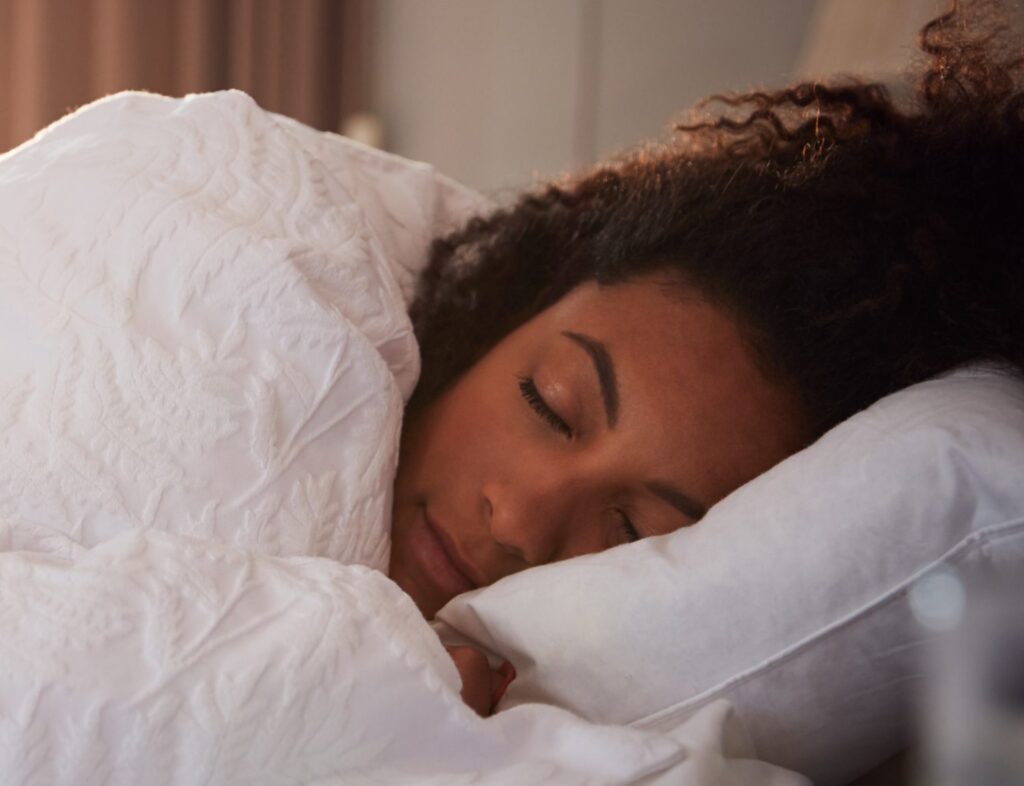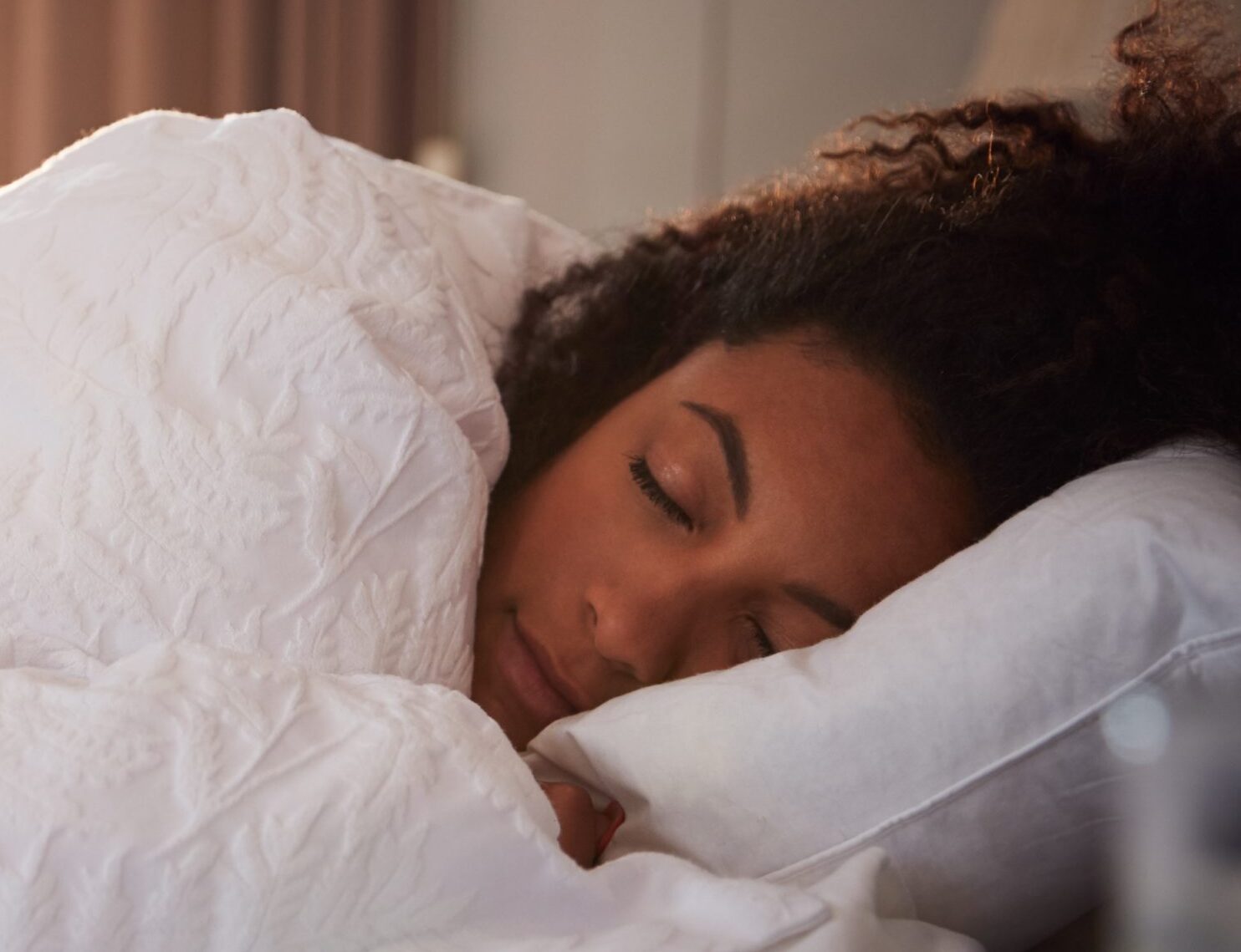Losing an extra hour of sleep may not be the worst thing that could happen when you “spring forward” at the start of daylight saving time. According to the American Heart Association, scientific researchers have noticed a marked increase in heart attacks and strokes in the days following this time change each year.
According to a study of hospital admissions across the state of Michigan, there was a 24% increase in heart attacks on the Monday following the switch to daylight saving time. In a study from Finland, researchers found that the overall rate of ischemic stroke was 8% percent higher during the first two days after a daylight saving time transition.
 |
 Nour Makarem, PhD. from Columbia University studies the health significance of sleep and how this clock change impacts your heart health. Her research helped the American Heart Association adopt sleep as a significant and modifiable risk factor, expanding the Simple 7s and creating the Essential 8.
Nour Makarem, PhD. from Columbia University studies the health significance of sleep and how this clock change impacts your heart health. Her research helped the American Heart Association adopt sleep as a significant and modifiable risk factor, expanding the Simple 7s and creating the Essential 8.
In her 2021 study she found that compared to people with poor sleep scores, those with ideal sleep health had 66% lower odds of high blood pressure, 58% reduced odds of Type 2 diabetes, 73% lower odds of obesity, and 69% lower odds of central adiposity, or waist-line fat.
“Multidimensional sleep health is important because our sleep habits are not isolated, they’re interrelated. Sleep health as a whole may be stronger than the sum of its parts,” said the study’s lead researcher Nour Makarem, PhD, a cardiovascular epidemiologist and assistant professor at Columbia University in New York City.
She compared evaluating sleep health to determining what makes up a healthy diet. “We don’t consume different foods and nutrients in isolation of each other. It’s the same with the different aspects of sleep.”
The American Heart Association offers a few tips to get ahead of the time change:
- Do start now to get outside and get as much natural light as possible each day. This can help adjust your body rhythm for the change to come.
- Do begin winding down a little earlier in the evenings ahead. While you can never make up lost sleep, going into the time change well-rested can help.
- Don’t compensate with extra caffeine. It may feel like an extra coffee or two can help you through the mid-day slump, but too much caffeine is not heart-healthy.
The American Heart Association’s Life’s Essential 8 recommended ideal level of sleep is:
7-9 hours daily for adults;
8-10 hours daily for ages 13-18 years;
9-12 hours daily for ages 6-12 years; and
10-16 hours daily for ages 5 and younger.
Makarem said doctors need to be more vigilant about diagnosing and treating sleep disorders, such as sleep apnea, and screening for sleep problems. But she also pointed out people need to pay more attention to their sleep habits, what time they go to bed and wake up each day, and how much sleep they get.
“One of the most important things is to have a fixed, consistent sleep schedule, getting seven to eight hours on both weekdays and weekends.”
It’s also important to limit alcohol, caffeine and large meals before bedtime, she said. Being physically active during the day and making sure your bedroom is quiet, dark and at a comfortable temperature can help you fall asleep more easily at night and improve your overall sleep health.
For tips about sleep and wellbeing visit www.heart.org
Check out our Daylight Saving Time media coverage in NYC:
FOX 5 Good Day New York, Friday March, 8, 2024:
NY1 Noticias, March 9, 2024:
Horario de verano: Lo que debes saber antes de adelantar tu reloj este fin de semana
La mayor parte de Estados Unidos “adelanta” el domingo el horario de verano, y perder esa hora de sueño puede hacer algo más que dejarte cansado y de mal humor al día siguiente. También puede ser perjudicial para la salud.
Las mañanas más oscuras y el aumento de la luz nocturna desajustan el reloj corporal, lo que significa que el horario de verano puede provocar problemas de sueño durante semanas o más. Los estudios han detectado incluso un aumento de los infartos de miocardio y los accidentes cerebrovasculares justo después del cambio de hora de marzo.
Hay formas de facilitar la adaptación, como tomar más el sol, para ayudar a restablecer el ritmo circadiano y conciliar un sueño saludable.
“Al igual que cuando se viaja a través de muchas zonas horarias, el tiempo que puede tardar es muy diferente para cada persona”, dijo el Dr. Eduardo Sánchez, de la Asociación Americana del Corazón. “Entienda que su cuerpo está en transición”.
